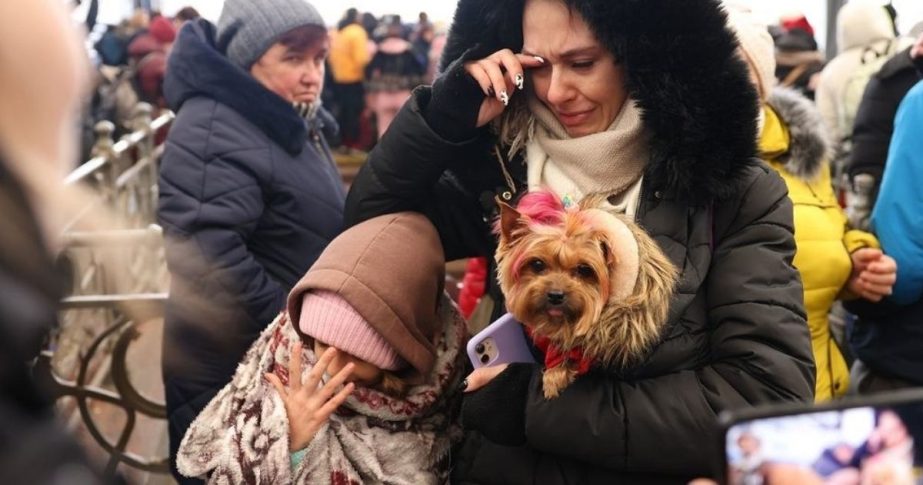
UNB, Dhaka :
Fighting in embattled Ukraine has so far pushed more than 500,000 people across the country’s borders, according to the UN refugee agency (UNHCR).
“This is a massive outflow that we’re witnessing and has all just happened in the space of five days. So this is a fast-growing refugee emergency,” spokesperson Shabia Mantoo said Monday.
Ukrainians have been fleeing their homeland since Russian President Vladimir Putin launched the “special military operation” on February 24, following weeks of troops and weapons buildups near the borders.
The majority, mostly women and children, has headed west to Poland. Others are entering Hungary, Moldova, Romania and beyond.
At the borders of Poland, Hungary, Slovakia, Romania and non-European Union (EU) member Moldova, long lines of cars and buses were backed up at checkpoints Monday. Others crossed the borders on foot.
Several hundred refugees were gathered at a temporary reception centre in the Hungarian border village of Beregsurany, where they awaited transportation to transit hubs that could take them further into Hungary and beyond.
Many of the refugees at the reception centre in Beregsurany, as in other border areas in Eastern Europe, are from India, Nigeria and other African countries, and were working or studying in Ukraine when the war broke out.
Hungary has opened its borders to all refugees fleeing Ukraine, including third-country nationals that can prove Ukrainian residency.
It has set up a “humanitarian corridor” to escort non-Ukrainian nationals from the border to airports in the city of Debrecen and the capital Budapest.
The welcome that Hungary is now showing Ukrainians is very different from the unwelcoming stance they have had toward refugees and migrants from the Middle East and Africa in recent years.
In Poland, the country that has reported the most arrivals, trains continued to bring refugees into the border town of Przemysl.
Olga, a 36-year-old mother from Kyiv is among the refugees. She set off from the city by car Thursday, accompanied by her daughter, 8, and son, 2, along with a neighbour and her daughter.
After three days on the road, they arrived at the Polish border town of Zosin.
“We fled as soon as the first bombs fell. It took us 12 hours just to get out of Kyiv,” Olga told the UNHCR Saturday. Normally, the journey would have taken seven hours.
Agency staff caught up with Olga when her car was in a line of thousands on the bridge over the River Bug, which marks the border between Ukraine and Poland.
“We’ve been waiting here for 36 hours now,” she said at the time, referring to the 14-kilometre queue.
People arriving on foot can skip the long traffic line and enter Poland much quicker.
Ukrainian refugees are being registered by national authorities in the countries that have received them.
The UNHCR and its partners are on the ground at main border areas to support these efforts.
Filippo Grandi, the UN high commissioner for refugees, has stressed that security and access for humanitarian action must be guaranteed.
“The UNHCR is also working with governments in neighbouring countries, calling on them to keep borders open to those seeking safety and protection,” he said.

